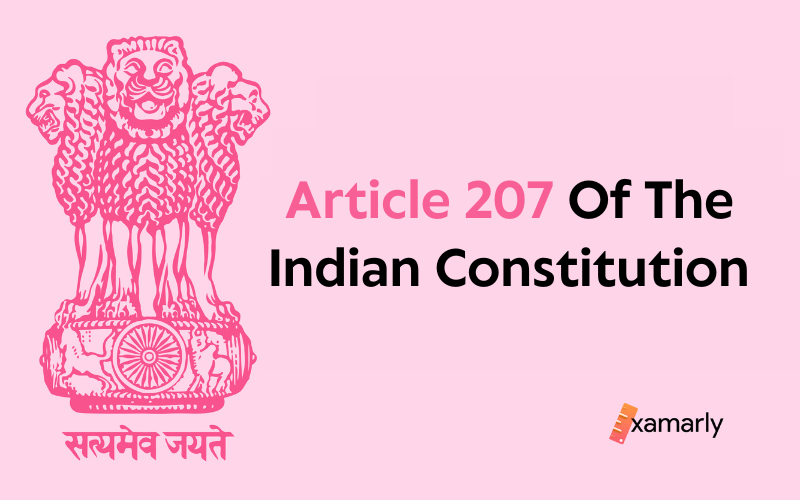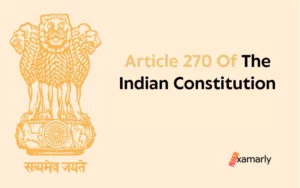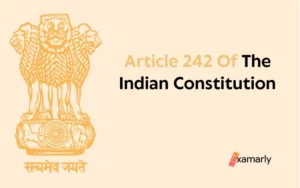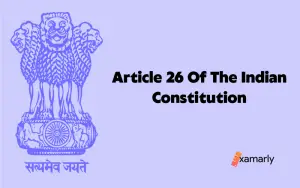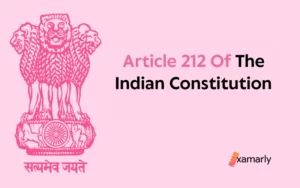What are the procedures or criteria followed while introducing or passing a Financial Bill? What role does the governor play in this process? Have you ever wondered? Read on to know!
Article 207 of the Indian Constitution deals with special provisions related to Financial Bills, which are bills that relate to the taxation, borrowing, or expenditure of money by the government.
According to this Article, there is a list of provisions that are accorded to the procedure of passing a Financial Bill. It gives primacy to the Governor of the State without whose recommendation no Bill can be introduced in the Legislative Assembly.
However, there are also some conditions and exceptions where a Financial Bill is introduced without requiring the Governor to approve it. Article 207 of the Indian Constitution ensures that Financial Bills in the State Legislature are carefully considered and debated before being passed into law.
Let’s read about it in detail below.
- Article 207 Of The Indian Constitution – Special Provisions As To Financial Bills
- Conclusion
- FAQs Related To Article 207 Of The Indian Constitution
- Which part of the Constitution does Article 207 belong to?
- What types of financial bills require the recommendation of the Governor in a state legislature?
- Can a Bill or amendment reducing or abolishing a tax be introduced without the recommendation of the Governor?
- Is the Governor's recommendation required for all Bills that involve expenditure from the Consolidated Fund of a state?
- Can a financial bill be introduced in a Legislative Council?
Article 207 Of The Indian Constitution – Special Provisions As To Financial Bills
Financial Bills are legislation that pertain to the government’s taxation, borrowing, or expenditure of money, and hence, it is essential to take extra measures and cautions to ensure the proper functioning of financial matters in the State.
Let’s take a closer look at the clauses of Article 207 of the Indian Constitution to understand it better.
Clause 1 – As it is & Explained
(1) A Bill or amendment making provision for any of the matters specified in sub clause (a) to (f) of clause ( 1 ) of article 199 shall not be introduced or moved except on the recommendation of the Governor, and a Bill making such provision shall not be introduced in a Legislative Council: Provided that no recommendation shall be required under this clause for the moving of an amendment making provision for the reduction or abolition of any tax
The first clause of Article 207 of the Indian Constitution accords the Governor with the power and authority to approve any Bill dealing with financial matters before it is introduced in the Legislative Assembly.
Article 199 of the Indian Constitution outlines the powers of the State Legislature to make laws on certain subjects. Subclauses (a) to (f) of Clause (1) of Article 199 specify certain matters that require the recommendation of the Governor who is the representative of the President of India in the state, before a bill or amendment related to those matters can be introduced or moved in the State Legislature. These matters include:
(a) The imposition, abolition, remission, alteration, or regulation of taxes
(b) The borrowing of money or the giving of any guarantee by the State, or the amendment of the law with respect to the financial obligations of the State, or the custody of the Consolidated Fund or the Contingency Fund of the State, the payment of money into or the withdrawal of moneys from any such Fund
(c) The alteration of the boundaries of any municipality or regional council or the dissolution of any such council
(d) The creation or abolition of any office in the State
(e) The regulation of the recruitment, and the conditions of service of persons appointed to public services and posts in connection with the affairs of the State
(f) The defining of the powers and duties of any local authority.
Therefore, if a bill or amendment relates to any of the above matters, it cannot be introduced in the State Legislature without the recommendation of the Governor, and cannot be introduced in the Legislative Council at all.
However, there is an exception to this rule: no recommendation is required for the moving of an amendment that seeks to reduce or abolish any tax.
Clause 2 – As it is & Explained
(2) A Bill or amendment shall not be deemed to make provision for any of the matters aforesaid by reason only that it provides for the imposition of fines or other pecuniary penalties, or for the demand or payment of fees for licences or fees for services rendered, or by reason that it provides for the imposition, abolition, remission, alteration or regulation of any tax by any local authority or body for local purposes
This clause of Article 207 of the Indian Constitution states that a bill or amendment will not be considered to make provision for any of these matters simply because it includes provisions for the imposition of fines or other financial penalties, or for the demand or payment of fees for licenses or services rendered.
Similarly, a bill or amendment will not be considered to make provision for these matters if it provides for the imposition, abolition, remission, alteration, or regulation of any tax by a local authority or body for local purposes.
This means that if a bill or amendment includes provisions related to the imposition of fines, fees, or taxes, but these provisions do not relate to any of the matters specified in subclauses (a) to (f) of Article 199, it will not require the recommendation of the Governor in order to be introduced or moved in the State Legislature.
Clause 3 – As it is & Explained
(3) A Bill which, if enacted and brought into operation, would involve expenditure from the Consolidated Fund of a State shall not be passed by a House of the Legislature of the State unless the Governor has recommended to that House the consideration of the Bill
Clause (3) of Article 207 of the Indian Constitution states that a bill that involves expenditure from the Consolidated Fund of a state (i.e., the fund that holds the revenues and loans raised by the State Government) cannot be passed by a House of the State Legislature unless the Governor has recommended to that House to consider the bill.
In other words, if a bill requires the use of funds from the Consolidated Fund in order to be implemented, it cannot be passed into law unless the Governor has formally suggested that it be considered by the relevant House of the State Legislature.
This requirement is in place to ensure that the State Government is held accountable for its financial decisions and that its expenditure is subject to scrutiny by the Governor.
Conclusion
In summary, Article 207 of the Indian Constitution says that a Bill or amendment relating to financial matters can only be introduced or moved in the Legislative Assembly with the recommendation of the Governor and cannot be introduced in a Legislative Council. However, this requirement does not apply to amendments that reduce or abolish a tax. A Bill or amendment is not considered to address the specified matters simply because it imposes fines or fees, or regulates taxes for local purposes.
Finally, a Bill that would result in expenditure from the Consolidated Fund of a state must be recommended by the Governor before it can be passed by the state’s legislature.
You might also like to read – Article 199 Of The Indian Constitution
FAQs Related To Article 207 Of The Indian Constitution
Which part of the Constitution does Article 207 belong to?
Article 207 belongs to Part VI of the Indian Constitution which is called “The States”.
What types of financial bills require the recommendation of the Governor in a state legislature?
Bills or amendments making provisions for certain matters, as specified in clause 1 of article 199, require the recommendation of the Governor before they can be introduced or moved.
Can a Bill or amendment reducing or abolishing a tax be introduced without the recommendation of the Governor?
Yes, the requirement for the Governor’s recommendation does not apply to amendments that reduce or abolish a tax.
Is the Governor’s recommendation required for all Bills that involve expenditure from the Consolidated Fund of a state?
Yes, any Bill that would result in expenditure from the Consolidated Fund of a state must be recommended by the Governor before it can be passed by the state’s legislature.
Can a financial bill be introduced in a Legislative Council?
No, a financial bill cannot be introduced in a Legislative Council.


